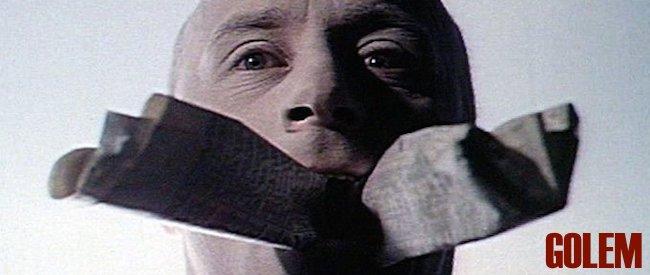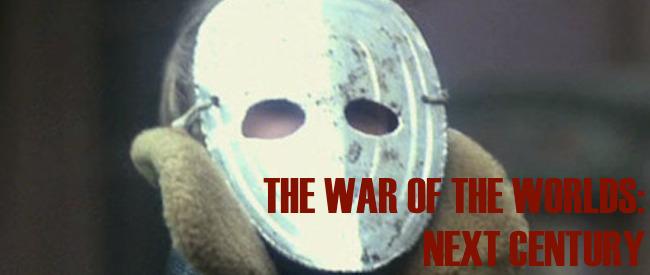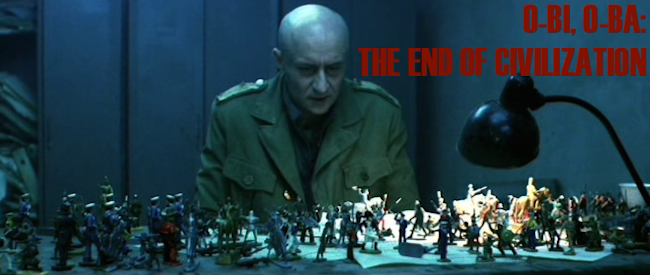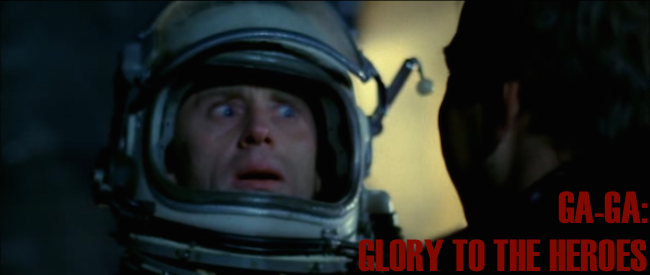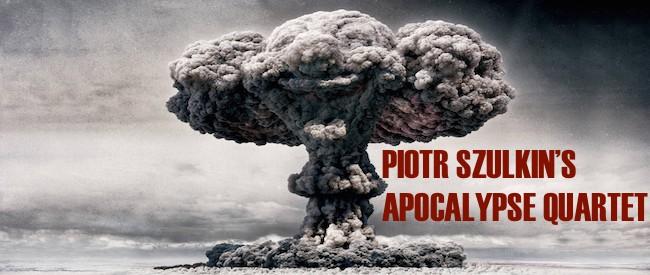
Two years after packing the house during our Eastern Bloc Apocalypse series, the remarkable work of Piotr Szulkin returns to Spectacle.
Criminally under-appreciated outside of his native Poland, Piotr Szulkin has hardly achieved cult status, even as other giants of Polish cinema (Andrzej Żuławski, Andrzej Wajda) get their due with retrospectives at respected theaters and museums. Born in Gdansk in 1950, Szulkin got his start at the State Higher School of Directing in 1975, producing animations, short documentary, and musicals. Working as a director, screenwriter, and novelist, his films occupy space on the bleaker fringes of the late Soviet period. His work stretches well into the 2000s, but it’s his dystopian “tetralogy”—four rarely screened science fiction films about the apocalypse produced in the twilight of Polish communism—that have been sought after by cinephiles for the past 30 years. Spectacle is proud to bring these films together for the first time as a major US retrospective.
Dismissive of the Polish critical establishment’s labeling of his work as sci-fi (he prefers the term “asocial fiction”), Szulkin’s vision of the apocalypse in the tetralogy is deeply rooted in the realities of life behind the Iron Curtain. Political violence, martial law, pervasive propaganda, and civilian apathy are the texture of his morbid future, set in worlds where humanity has been hobbled under the pressures of state control. Shot on spartan budgets in a gritty, expressive style, the films are wildly imaginative and inventive, even as they mine the depths of wasted potential and human exploitation for allegories of life under the 1980s Polish regime.
Spectacle is deeply grateful to Piotr Szulkin for his support of this series.
GOLEM
Dir. Piotr Szulkin, 1980
Poland, 92 min.
In Polish with English subtitles
MONDAY, MAY 4 – 7:30 PM
MONDAY, MAY 18 – 10 PM
SATURDAY, MAY 23 – 10 PM
SUNDAY, MAY 24 – 5 PM
The first film of the quartet, GOLEM (1979), is a loose retelling of Der Golem, Gustav Meyrink’s 1914 novel. Replacing the ghettos of Prague with a garbage-strewn, dilapidated future, Szulkin’s adaptation trades the golem for “Pernat,” a clone manufactured for shadowy reasons by a totalitarian regime. Pernat, played with remarkable gentility by Szulkin favorite Marek Walczewski, interacts with the swifter edges of Polish society as he attempts to understand the institution that created him, and his purpose on the planet. Upon its release, the film won the Brown Lion at the Gdańsk Film Festival, but has been all but forgotten today.
THE WAR OF THE WORLDS: NEXT CENTURY
Dir. Piotr Szulkin, 1981
Poland, 92 min.
In Polish with English subtitles
SUNDAY, MAY 10 – 7:30 PM
WEDNESDAY, MAY 13 – 10 PM
WEDNESDAY, MAY 20 – 7:30 PM
SUNDAY, MAY 31 – 5 PM
This bleak homage to Orson Welles and H.G. Wells was released just weeks before Poland’s authoritarian government introduced martial law across the country to crush any semblance of political opposition. This tense atmosphere is directly reflected in the film, which begins with the arrival of an advanced civilization from Mars on December 18, 1999. The invaders find a pure and total police state, with a population kept in shackles by omnipresent television sets, used as a tool for propaganda. (Szulkin is famously dismissive of television, which is referred to here as “a box of excrement in living color.”) Sensing an opportunity to exploit humanity, the Martians engage the police force to abuse its populace, and force a local television host to collaborate with the state apparatus in a propaganda campaign to convince the civilian populace to donate blood. The host is bounced like a ping-pong ball between the police and the bloodthirsty Martians, ultimately attempting a thwarted rebellion that changes nothing. It went on to win the Grand Prix, and awards for Best Director and Best Screenplay at the Gdańsk Film Festival, along with the Special Jury Award at the International Film Festival in Trieste.
O-BI, O-BA: THE END OF CIVILIZATION
Dir. Piotr Szulkin, 1984
Poland, 85 min.
In Polish with English subtitles
FRIDAY, MAY 1 – 10 PM
MONDAY, MAY 11 – 10 PM
FRIDAY, MAY 22 – 7:30 PM
THURSDAY, MAY 28 – 7:30 PM
It is one year since nuclear war rolled over the world. Humanity has forgotten who won the war. The 850 survivors have herded together atop the Arctic Circle. There, underneath an insulated dome, they have succumbed to a group psychosis, clinging to the hope that a vessel called “The Ark” is en route to rescue them from their hell. Meanwhile, a subtle class system develops based around silver coins called “Arks,” and those without them die from malnutrition and exposure. As the protective dome begins to erode, morals and ethics follow suit, and the architect of “The Ark Myth” is forced to confront his hoax head on.
The obvious highlight of Szulkin’s apocalypse quartet, O-BI, O-BA is a vision of pure and total apocalypse unfettered by ornamental sentimentality.
GA-GA: GLORY TO THE HEROES
Dir. Piotr Szulkin, 1986
Poland, 84 min.
In Polish with English subtitles
TUESDAY, MAY 12 – 10 PM
SATURDAY, MAY 16 – 10 PM
SATURDAY, MAY 23 – 7:30 PM
MONDAY, MAY 25 – 7:30 PM
WEDNESDAY, MAY 27 – 7:30 PM
GA-GA: GLORY TO THE HEROES, the comic end to the apocalypse quartet, begins with an interplanetary mission to an uninhabited planet called Australia 458. Instead of putting civilians in danger, the brutal regime forces Prisoner 287138, played by Wadja regular Daniel Olbrychski, to land on the unknown planet and claim it for humanity. To his surprise, the planet is the home of an equally insane regime that greets him as a celebrity, only to force him to commit crimes that will result in his public execution.

